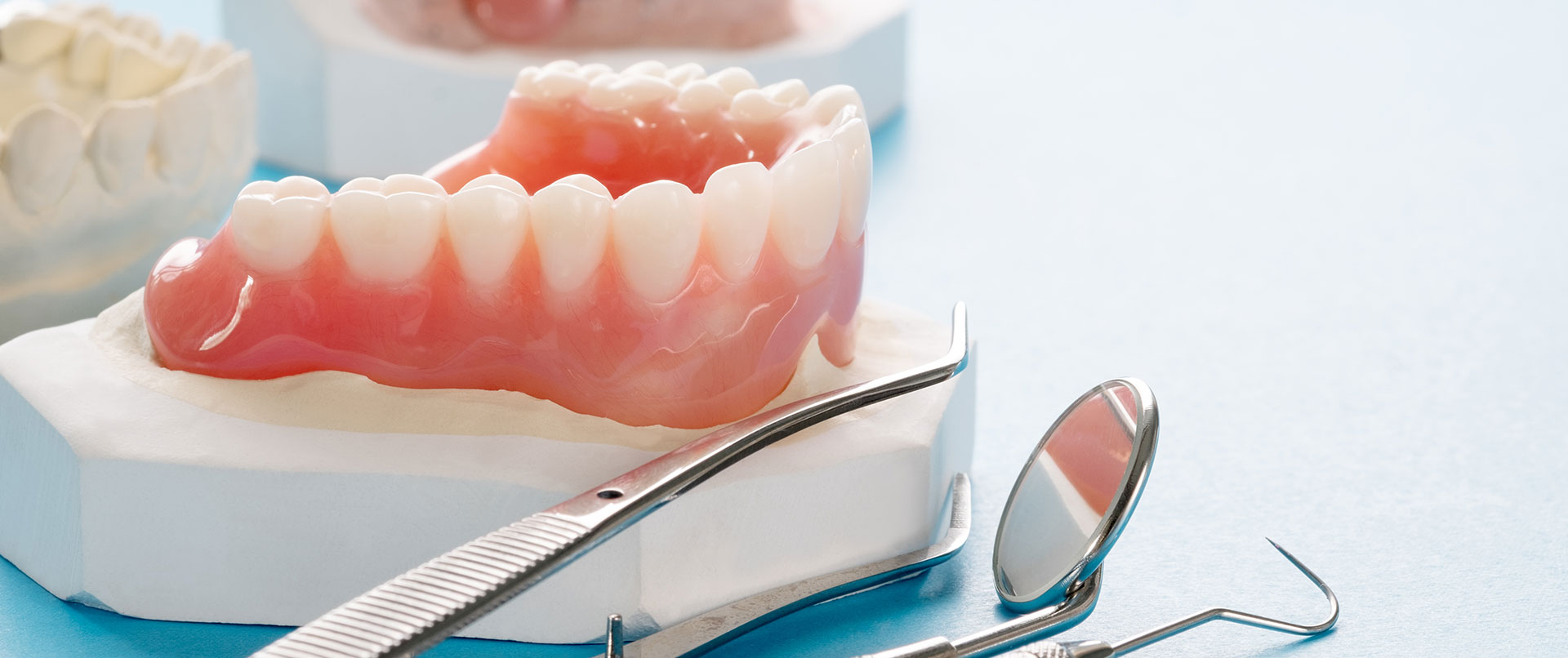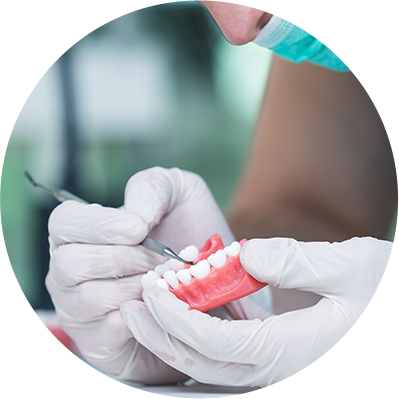Denture stabilisation with Implants
What is denture stabilisation
It is a type of denture that is supported by and attached to implants. It has special attachments that fit over the implants like a snap fastener or a press-stud. These help to keep the denture in place, preventing movement, and dramatically improving the fit and chewing ability. Implant-supported dentures are particularly beneficial for the lower jaw because regular dentures tend to be less stable there. We only recommend this procedure for lower jaw dentures because research has shown high failure rate of the upper jaw using this method.


DENTAL IMPLANTS
The process & how long will it take
Stage 1
You will require minor surgery to have the implants placed into your jaw. During this procedure, the implants are positioned in the bone under the gum and are allowed to heal. A temporary denture can be made which will help to avoid placing direct pressure on the implants while healing. The temporary denture may also be given a soft reline (new lining next to your gums) to help to reduce the pressure on your gums.
The healing process takes about three months.
Stage 2
After about 3 months of healing, the second surgery can be scheduled. The second surgery involves exposing the top part of the implants and placing a healing cap (collar) on the head of each implant. The healing caps help to guide the gum tissue to heal correctly.
Two weeks after the second surgery, the healing caps will be replaced by press stud attachments (locator abutments). Your gums should now be healed enough for us to take an impression of your gum tissue and locator abutments. The impression is used to make a working model of your abutments and jaw, and this model is used to make a final denture framework and teeth.
Completion Stage
The final stage takes about 4 visits to complete. You will attend a try-in appointment to ensure that the final denture is fitting well. If all fits well, the denture will be processed by the dental lab and delivered for final placement onto the implants. On your final visit, when the denture is inserted, it is clipped onto the locator attachments. We will then test all the parts of your new denture to see if they are secure, and will check your gums and the way your top and bottom teeth come together (your bite). You will also be shown how to remove and care for your new denture.

DENTAL IMPLANTS
Who is suitable for this treatment
This treatment is ideal for people who are struggling to cope with their current set of lower dentures or who need a lower set of dentures and is fit for surgery and have healthy gums.
An alternative to this treatment is an all – on – four fixed bridge.
What are the main benefits:
• An implant-supported denture is a stable solution to loose dentures.
• Implant supported dentures are the most budget friendly solution in the implant treatment range.
• Dental implants integrate with your jawbone, helping to keep the bone healthy and your natural smile intact. Unlike conventional dentures, the bone that previously surrounded the tooth roots will begin to deteriorate and this may lead to collapsed, unattractive smile.
• Implant supported dentures click securely onto the implants but can easily be unclipped for cleaning.

DENTAL IMPLANTS
Caring for you implant supported denture
You will need to remove the denture every night for cleaning. You should carefully clean around the attachments, which, along with the clip, should be replaced every 6 to 12 months. These are made of a plastic material (nylon) and will wear with use. The locator abutments can also wear out, and will need replacing every 3-5 years. The overall life expectancy of an implant range from 10 – 20 years.
What can you expect from your implant supported denture
Your denture will be more stable than a regular denture. You will find it easier to speak and you won’t have to worry about the denture becoming loose or falling out of your mouth. You will generally be able to eat foods you could not eat before, but you will not be able to chew very hard or eat sticky foods because they can damage your denture.


